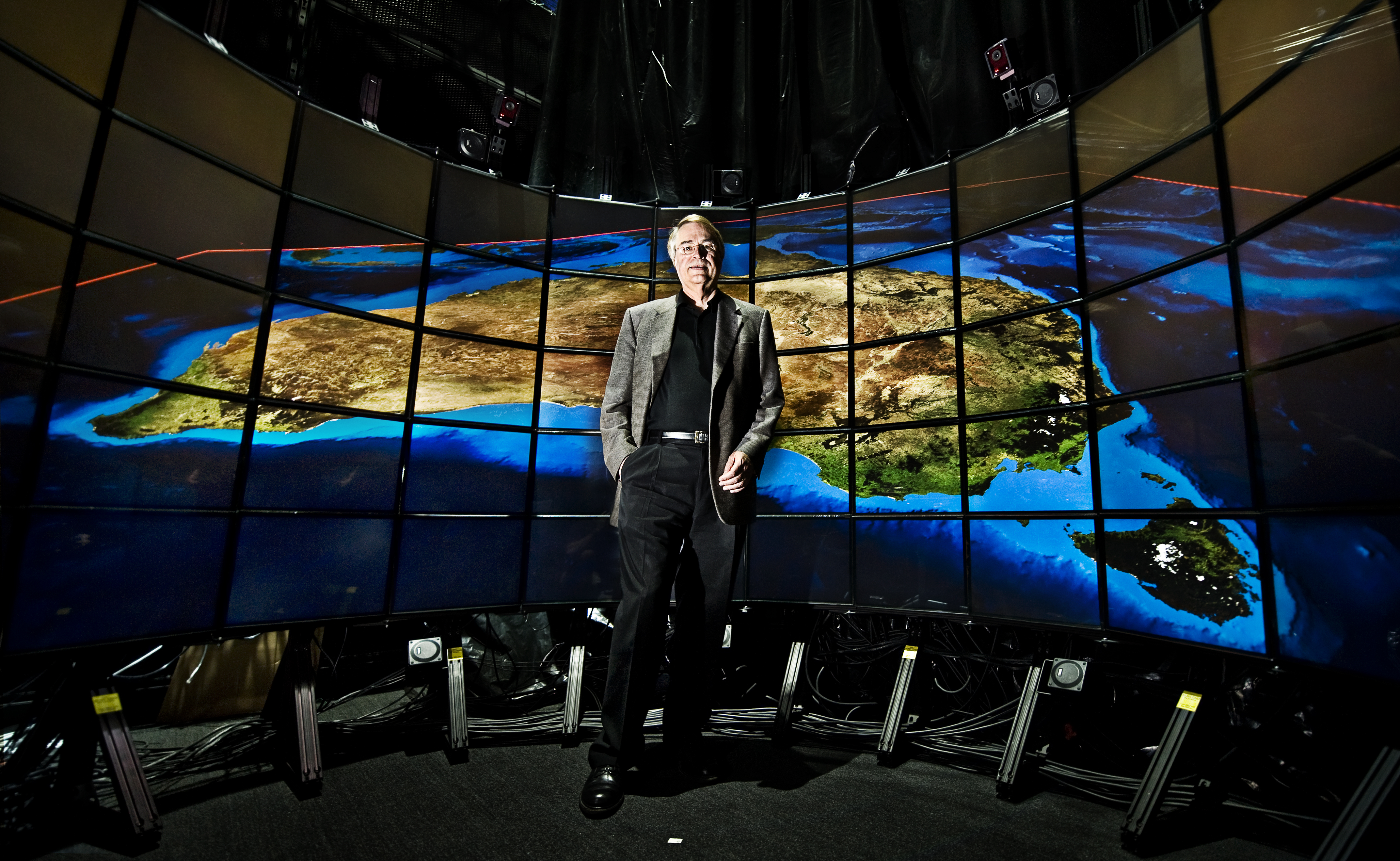
Abstract
The continuing rise in greenhouse gases (GHG) in Earth’s atmosphere caused by human activity is beginning to alter the delicately balanced climate system. Means to slow down the rate of GHG emissions are needed to avoid catastrophic climate change in the future. While moving from a high-carbon to a low-carbon energy system is the long term solution, more energy efficient cyberinfrastructure can provide some relief in the short term. In this lecture, Larry Smarr will review several projects which Calit2 is carrying out with our UCSD and UCI faculty in energy efficient data centers, personal computers, smart buildings, and telepresence and show how university campuses can be urban testbeds of the greener future.
Biography
Larry Smarr became founding director in 2000 of the California Institute for Telecommunications and Information Technology (Calit2), a University of California San Diego/UC Irvine partnership. He holds the Harry E. Gruber professorship in the Jacobs School’s Department of Computer Science and Engineering at UCSD. For the previous 15 years as founding director of the National Center for Supercomputing Applications Smarr helped drive major developments in the planetary information infrastructure: the Internet, the Web, scientific visualization, virtual reality, and global telepresence.
Smarr serves as PI on the NSF’s OptIPuter and the Moore Foundation’s CAMERA microbial metagenomics projects, as well as co-PI on the NSF GreenLight Project. Smarr was a member of the President’s Information Technology Advisory Committee for President Clinton and served until 2005 on the Advisory Committee to the Director of the National Institutes of Health and the NASA Advisory Council. He served on Governor Schwarzenegger’s California Broadband Taskforce in 2007. He is a member of the National Academy of Engineering and a Fellow of the American Physical Society and the American Academy of Arts and Sciences. In 2006 he received the IEEE Computer Society Tsutomu Kanai Award for his lifetime achievements in distributed computing systems.